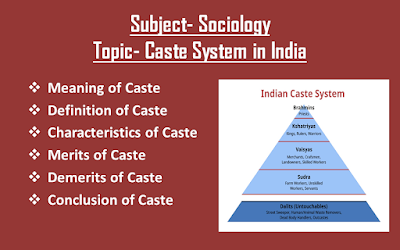Economic Institutions- Meaning, Definition, Characteristics and Functions
# Meaning of Economic Institutions
Economic institutions refer to the social structures, organizations, and rules that shape economic activity and influence the behavior of individuals and groups within an economy.
Economic institutions comprise networks of organizations that govern the production, distribution, and consumption of goods and services.
# Definition of Economic Institutions
1. According to Emile Durkheim:- "Economic institutions are the collective representations and norms that govern economic life, including the moral and social rules that regulate economic behavior."
2. According to Max Weber:- "Economic institutions are the rational and irrational elements that shape economic action, including the role of interests, values, and power in economic decision-making."
3. According to George Herbert Mead:- "Economic institutions are the social structures and processes that shape economic behavior, including the ways in which individuals and groups interact and coordinate in economic contexts."
4. According to Talcott Parsons:- "Economic institutions are the normative and cognitive frameworks that govern economic activity, including the shared values and beliefs that shape economic decision-making."
# Characteristics of Economic Institutions
1. Rules and regulations:- Economic institutions establish the rules and regulations that govern economic activities. These can include laws, policies, and guidelines that dictate how markets operate, how businesses function, and how resources are allocated.
2. Collective action:- Economic institutions often arise from collective action among individuals and groups. They facilitate cooperation and coordination among members of society, enabling them to work together towards common economic goals, such as trade, investment, and resource management.
3. Long-term stability:- As social institutions, economic institutions tend to have a long-term presence and stability within a society. They evolve over time but maintain continuity, providing a framework for economic interactions and relationships across generations.
4. Social relationships:- Economic institutions are built on social relationships and networks. They influence how individuals and groups interact in economic contexts, shaping trust, collaboration, and competition within markets.
5. Social and cultural context:- Economic institutions are influenced by the social and cultural context in which they operate. Norms, values, and traditions can shape the design and effectiveness of institutions, impacting economic performance.
# Functions of Economic Institutions
1. Production:- The economy organizes the production of goods and services, utilizing resources such as labor, capital, and land.
2. Distribution:- The economy distributes goods and services to consumers, either through markets or other mechanisms, ensuring that resources are allocated efficiently.
3. Exchange:- The economy facilitates exchange between individuals, businesses, and governments, using money or other mediums, enabling trade and commerce.
4. Allocation:- The economy allocates resources to various activities and industries, determining what goods and services are produced, how they are produced, and for whom they are produced.
Watch video on YouTube





